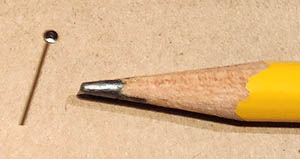Term of the Moment
Electronic Computer Glossary
Definition: ENIAC
(Electronic Numerical Integrator And Computer) The first operational electronic computer, ENIAC was developed for the U.S. Army by J. Presper Eckert and John Mauchly at the University of Pennsylvania. It was built from mid-1943 to the end of 1945 at a cost of nearly $500,000 (equivalent to $7M today).
ENIAC Was a Decimal Machine
The storage of each decimal digit required 10 vacuum tubes because ENIAC was decimal based, not binary. Today's computers hold 20 trillion digits in the space of "one" ENIAC digit. For the first binary computers, see Z1 and ABC.
Amazing but Serious Maintenance
The New York Times said "One of the war's top secrets, an amazing machine which applies electronic speeds for the first time to mathematical tasks hitherto too difficult and cumbersome for solution, was announced tonight."
Too Late for Its Original Mission
Initially targeted for trajectory calculations in World War II, by the time ENIAC was ready, the war had ended. The computer was moved to the army's Aberdeen Proving Grounds in Maryland where it performed computations such as thermonuclear reactions in hydrogen bombs until the mid-1950s. Today, parts of ENIAC are on display around the country including the Smithsonian and University of Pennsylvania. See chip, EDVAC and early computers.


The ENIAC in 1946

A Whole Lot Faster than the ENIAC
ENIAC Was a Decimal Machine
The storage of each decimal digit required 10 vacuum tubes because ENIAC was decimal based, not binary. Today's computers hold 20 trillion digits in the space of "one" ENIAC digit. For the first binary computers, see Z1 and ABC.
Amazing but Serious Maintenance
The New York Times said "One of the war's top secrets, an amazing machine which applies electronic speeds for the first time to mathematical tasks hitherto too difficult and cumbersome for solution, was announced tonight."
Too Late for Its Original Mission
Initially targeted for trajectory calculations in World War II, by the time ENIAC was ready, the war had ended. The computer was moved to the army's Aberdeen Proving Grounds in Maryland where it performed computations such as thermonuclear reactions in hydrogen bombs until the mid-1950s. Today, parts of ENIAC are on display around the country including the Smithsonian and University of Pennsylvania. See chip, EDVAC and early computers.


Looking like a scene in an old science fiction movie, this was an awesome sight in 1946. At its dedication ceremony, smaller, faster computers were forecast, and they were right. But could they have imagined all the circuitry in the ENIAC would eventually fit on the head of a pin! (Bottom image courtesy of The Computer History Museum.)

Today's computers on a chip can be so small they could be lost in a shirt pocket. Not only that, these microcontrollers from Microchip Technology, are a whole lot faster than the ENIAC. See microcontroller.